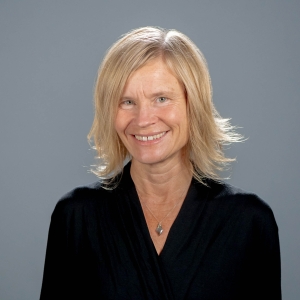Kara L. Nelson
663 Davis Hall
Spring 2026
Tuesdays 3:10 - 4:00 pm

Dr. Kara Nelson is the Blum Chancellor's Chair in Development Engineering and a Professor of Civil and Environmental Engineering. She received her B.S. degree in biophysics from U.C. Berkeley (1992), her M.S.E. degree in environmental engineering from the University of Washington (1996), and Ph.D. degree in environmental engineering from the University of California, Davis (2001). In her research program, Prof. Nelson aims to develop innovative technologies and accelerate the adoption of environmentally sustainable and socially equitable water infrastructure and practices around the globe. Specific areas of research include intermittent water supply, wastewater-based epidemiology, water reuse, disinfection, nutrient recovery, and improved sanitation. She teaches courses on innovation in the water sector, drinking water and wastewater treatment processes, pathogen detection and inactivation, and natural treatment systems, taking into consideration the wide range of contexts that exist in low to high-resource communities. Nelson is the recipient of the Faculty Award for Outstanding Mentorship of Graduate Student Instructors, the Chancellor’s Public Service Award for Campus Community Partnership, a Fulbright Fellowship, and the National Science Foundation PECASE Award. Prof. Nelson is passionate about creating a climate in which everyone belongs and can reach their full potential, and previously served as Associate Dean for Equity and Inclusion in the College of Engineering.
Prof. Nelson serves as the Associate Director of Development Engineering at the Blum Center for Developing Economies, which offers the Designated Emphasis in Development Engineering and the Professional Masters Degree in Development Engineering. She is currently the President of the Association of Environmental Engineering and Science Professors (AEESP) From 2011-2022, Nelson held multiple leadership positions in the National Science Foundation Engineering Research Center for Re-inventing our Nation’s Urban Water Infrastructure (ReNUWIt).
Ph.D., Environmental Engineering, the University of California at Davis, 2001
M.S.E., Environmental Engineering, University of Washington, 1996
B.A., Biophysics, the University of California at Berkeley, 1992
The Nelson group's research aims to advance environmentally sustainable and socially equitable water infrastructure and practices around the globe. We embrace the challenge of studying complex systems and recognize that engineering is only part of the solution. We strive to bring attention and resources to understudied problems, leverage our unique capabilities as researchers at a world-class university while also recognizing our limitations, and collaborate with partners (academic and non-academic) with whom we have shared goals. We conduct research at several levels, including fundamental science (e.g., mechanisms of pathogen inactivation), research methods (e.g., new molecular techniques for pathogen detection), engineering practice (e.g., optimizing treatment processes), technology innovation (e.g. low-cost treatment technologies to recover nutrients from waste streams), and systems analysis (e.g., life cycle analysis of greenhouse gas emissions of innovative technologies). We aim to embody excellence in all that we do. To support each other’s success, we actively work to cultivate an inclusive climate in the research group and to continuously educate ourselves about inclusive practices.
Visit our research group website: https://nelsongroup.berkeley.edu
News
Spotlights
| Title | Publication Date |
|---|---|
| William Tarpeh |
Student Updates
No mentions in Student Updates


